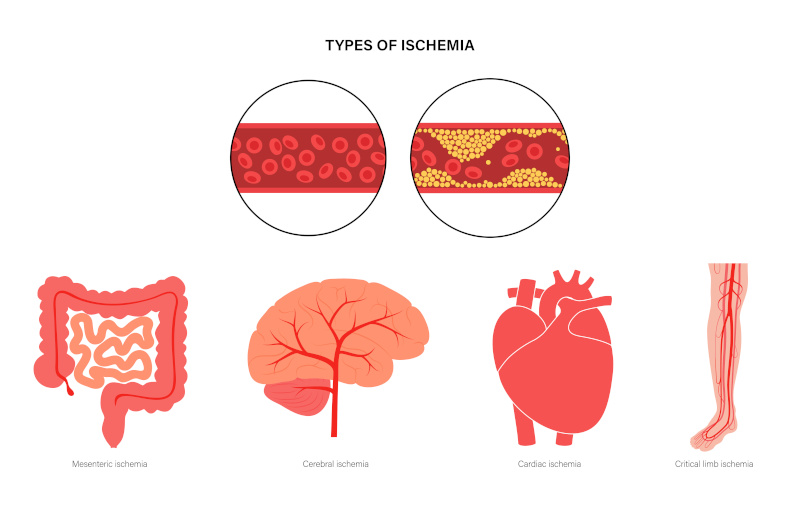
Preventing ischemia: an essential guide
Raising Awareness for Better Health
Ischemia, a word perhaps unfamiliar to many, describes a serious medical condition caused by inadequate blood supply to an organ or tissue, compromising the delivery of vital oxygen and nutrients. This phenomenon can have serious consequences, from sudden pains to permanent damage to the affected organ, making understanding and prevention crucial.
Understanding Ischemia
Ischemia occurs when an artery narrows or becomes blocked, often due to atherosclerosis, the buildup of fatty plaques in artery walls. This narrowing can affect various organs and tissues, with the heart and brain among the most affected. Individuals may experience different symptoms depending on the affected area, such as chest pain (angina) or warning strokes (mini-strokes), which require immediate medical attention.
Lifestyle and Prevention
Fortunately, significant lifestyle changes can greatly reduce the risk of ischemia. A balanced diet rich in fruits, vegetables, and whole grains, coupled with regular physical activity, plays a crucial role. Avoiding smoking and limiting alcohol consumption help keep arteries clean. Stress management, moreover, should not be underestimated, as chronic stress can increase blood pressure and the risk of plaque formation.
The Role of Medical Prevention
In addition to lifestyle interventions, regular medical check-ups are essential. Measuring blood pressure, cholesterol levels, and blood sugar can reveal early signs of risk. In certain cases, the doctor may recommend medications to help manage these conditions. The key is to identify and treat risk factors before they can cause damage.
Ischemia is a serious condition but, with proper prevention, its risks can be significantly reduced. Adopting a healthy lifestyle and undergoing regular medical check-ups are fundamental steps to protect one’s health. Awareness and education about ischemia prevention can make a big difference in the lives of many people, promoting a healthier and more informed community.
Sources


